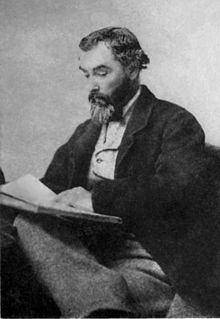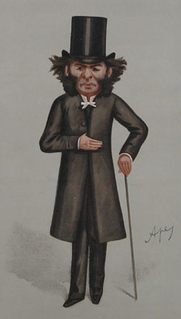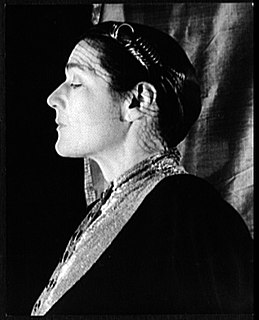A Quote by John Greenleaf Whittier
The best of a book is not the thought which it contains, but the thought which it suggests; just as the charm of music dwells not in the tones but in the echoes of our hearts.
Related Quotes
You will want a book which contains not man's thoughts, but God's - not a book that may amuse you, but a book that can save you - not even a book that can instruct you, but a book on which you can venture an eternity - not only a book which can give relief to your spirit, but redemption to your soul - a book which contains salvation, and conveys it to you, one which shall at once be the Saviour's book and the sinner's.
Art is universal. It unites mankind in common brotherhood. As a missionary of civilization, its message is both to heart and mind. Distinctions of tongue or boundary lines disappear before the power of truths, which, like the rainbow, charm by the beauty of variegated hues, or, combined with light, illuminate the universe. Moreover, art is the connecting link in the chain of great minds. Through its language, thought appeals to thought, and sympathy echoes feeling.
How is it that the poets have said so many fine things about our first love, so few about our later love? Are their first poems their best? or are not those the best which come from their fuller thought, their larger experience, their deeper-rooted affections? The boy's flute-like voice has its own spring charm; but the man should yield a richer, deeper music.
A book no more contains reality than a clock contains time. A book may measure so-called reality as a clock measures so-called time; a book may create an illusion of reality as a clock creates an illusion of time; a book may be real, just as a clock is real (both more real, perhaps, than those ideas to which they allude); but let's not kid ourselves - all a clock contains is wheels and springs and all a book contains is sentences.
By the end of the book, it is quite different than the way you thought it would be when you started the book - both in form and what it contains and what you think. Well, you tipped in a lot and you digested a lot - it wasn't pre-digested in your view. And it changed what you thought and how you see things.
I worked out a book which I thought was just straight science fiction -- with everything pretty much explained, and suddenly I got an idea which I thought was kind of neat for working in a mythological angle. I'm really struggling with myself. It would probably be a better book if I include it, but on the other hand I don't always like to keep reverting to it. I think what I'm going to do is vary my output, do some straight science fiction and some straight fantasy that doesn't involve mythology, and composites.
Jack Bogle's passionate cry of Enough! contains a thought-provoking litany of life lessons regarding our individual roles in commerce and society. Employing a seamless mix of personal anecdotes, hard evidence and all-too-often-underrated subjective admonitions, Bogle challenges each of us to aspire to become better members of our families, our professions and our communities. Rarely do so few pages provoke so much thought. Read this book.
Thought without language, says Lavelle, would not be a purer thought; it would be no more than the intention to think. And his last book offers a theory of expressiveness which makes of expression not "a faithful image of an already realized interior being, but the very means by which it is realized.






































